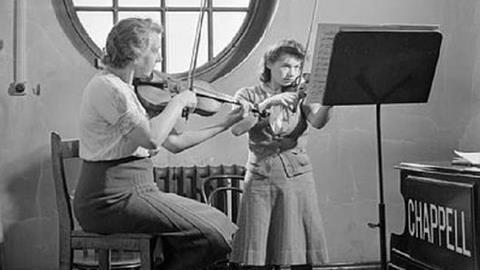Students learn most from making mistakes in their playing, and it’s up to the teacher to find the right way of dealing with them, says Royal Northern College of Music senior lecturer in music education Philippa Bunting

Explore more Featured Stories like this in The Strad Playing Hub
Have you ever made any teaching mistakes, I wonder? If so, how did you recover? Do they still sit on your conscience, a terrible blot, or have you assimilated them? Learnt something? Moved on? And what about your pupils? Have they ever misplayed, mispitched, miscounted, miscommunicated or just downright misunderstood something?
All of us learn best from our mistakes. Painful as they may be to make, and agonising to reflect upon, these are the moments when we grow the most. And the attitude we take to the mistakes our pupils make will say a lot about us as teachers. Do we laugh, encouragingly or otherwise? Do we wince visibly, emitting sharp little intakes of breath every time a note is not perfectly in tune? Or, as I once observed in a very eminent teaching studio, drop our collective head into our hands, collapse on to the desk and mutter, barely audibly: ‘Oh my God, how ghastly – I can’t listen to a note more.’
We always tell our pupils that we would much rather they give a committed, communicative performance with mistakes than a robotic, technically perfect one, and they rarely ever believe us. Is there something in the culture they are picking up that we could work on eliminating? Given that they are drinking in every detail of how we are as people as well as musicians, are we ourselves modelling an approach to error that is helpful, or pandering to the perfectionist that lurks so close to the surface?
Of course, standards and quality are key to our whole enterprise. And they are there all along, not just in the heady upper ether, where the clinical perfection of the recording studio provides yet another layer of criticality for our aspiring young musicians to negotiate. But is the most healthy way to guard those standards always striving for, and only tolerating, perfection? Are the best musicians necessarily those who make fewest mistakes?
Recently, the question has been raised of whether teachers are too kind. Another question – whether criticism automatically makes better players than encouragement – has not. For me, that particular argument seems to suggest that there is only one kind of teacher that suits everybody, and only one kind of teacher is best at all stages of development. Both of those ideas are surely nonsense. Although undeserved praise is of course fatuous, its opposite can leave scars.
Read: Performance anxiety: Fighting stage demons
Read: Kim Kashkashian's top 5 tips on combating stage fright
Discover more Featured Stories like this in The Strad Playing Hub
There is a particularly sterile school of teaching, which goes something like this: pupil starts playing a piece prepared at home, and plays through until the point at which teacher identifies a mistake. Teacher stops pupil: ‘No. That’s wrong. It should be X. Try again.’
Pupil sighs inwardly, returns to the beginning and makes a second attempt, this time aware of the potential wrongness and anticipating it. One of two things happens: pupil passes the point safely and continues until the next problem is identified, or, mired in anxiety, slips again.
All the energy of the lesson focuses on that point of negativity, and all phrasing is lost. The interaction between teacher and student stems wholly from this central cause, a kind of depressing and too frequent cadence point. The ‘problem’ becomes the lesson. And often not just the problem in toto, but localised to a particular point in a particular piece of repertoire. It takes years of experience to be able to apply a solution developed for one circumstance to other, similar ones, and that experience is exactly what our pupils (in most cases not having lived as long as us) lack.
Logically speaking, the terminus of that idea is that the pupil needs to perform the entire repertoire in front of the teacher until it is performed perfectly, the teacher is no longer needed, and the pupil is free to go. That’s an awful lot of learning time – long years indeed, and potentially rather tedious ones.
‘Eighty per cent of what we teach is who we are,’ says Eric Booth, author of The Music Teaching Artist’s Bible. How we handle mistakes, our own and those of our pupils, is an important part of that 80 per cent. Do we focus on being good, or on getting better? By striving for perfection, are we pretty much guaranteeing failure? In trying to avoid mistakes, are we missing a whole lot of wonderful things along the way?
As musicians, we are human beings speaking to one another through art, and part of that, surely, is allowing our vulnerability to show.
Read: How to perform with confidence – 3 golden rules about stage performance
Read: The Inner Monsters responsible for performance nerves
Discover more Featured Stories like this in The Strad Playing Hub
This article was first published in The Strad's November 2012 issue.











































No comments yet